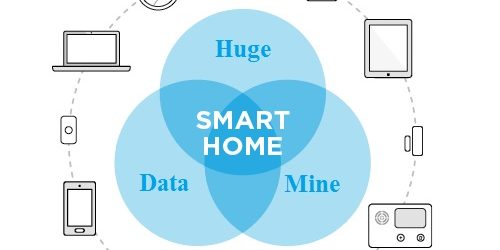Smart Homes Are Huge Data Mines (Part I)
Biometric data will be tied to personal data, smart homes will collect it and one day leak it
Smart homes are starting to develop in the United States of America as manufactures seek to introduce more “Internet of Things” (IoT) into our lives. What is IoT? In the most basic terms, it is stuff that can be connected, monitored, and controlled using the internet. Your smartphone, computer, and Tesla cars are a few examples. Samsung makes extremely popular smartphones, so it wasn’t a far-fetched idea to slap a Wi-Fi chip in their already computerized household devices like refrigerators, washing machines, and lights.
People take smartphones for granted even though they’re amazing pieces of technology packed into one device. Putting smartphone capabilities in something as big as a refrigerator or car is probably a little bit cheaper due to the larger scale (bigger microchips are generally cheaper to produce). We’ve all seen how “amazing” Google Home and Amazon Alexa are, but these devices are definitely spying on us just like our smartphones are. No matter how much Apple, Google, or Amazon claim they’re not spying on us or data mining every byte of our data, it’s hard to believe them as they rush to develop their data mining operations in every conceivable way possible.
Always on, always connected, always spying
Everything you say and do on your smartphone is being sent to a huge data farm to be harvested. The mere notion that smart home devices would be any different is naïve. Why would these giant companies change their trillion-dollar formulas now? The law certainly doesn’t prohibit them from doing it via smartphone. Using a smartphone and/or smart home device usually forces you to do one thing – voluntarily consent to sharing everything under the sun.
Your personal data is being mined. Apple, Google, Microsoft, and just about every other big tech company claims they have the best defenses and are un-hackable. We all know that the Titanic sank after its boasts of being unsinkable. When the inevitable happens and these huge data farms are raided by criminal hackers, your personal information from your IoT devices will be leaked all over the internet. It’s all marketing – no company is invincible. Lulling customers like you into a false sense of security is the first step in getting you to agree. When something does go wrong, they hide behind their lawyers and point out that you voluntarily consented to give up your personal data and therefore they can’t be liable for damages.
Wiperts can remove your personal information online
It’s a little strange that these mega corporations are routinely hacked but don’t have to do much, if anything, to clean up their mess. Even if lawsuits against them prevail, the compensation isn’t enough to cover the damages caused overall. Sometimes hacked companies offer identity protection services for free… but you have to agree not to sue them in exchange. It’s better to use an uninvolved party like Wiperts in order to lay out your priorities and concerns. Free services often don’t do a good job of protecting your information. Wiperts does so at a very reasonable price.
Maybe we’ll all have smart homes one day, just like how we all have smartphones. But don’t be surprised when Alexa or Google records entire conversations, transcript included, and accidently puts it online for the world to hear and read. These companies are run by people and computers, neither of which are perfect. It’s conceivable a glitch will happen in the nearby future, exposing your personal information online. Protect yourself by subscribing to Wiperts. Your personal information will include more detail as the internet evolves with 5G. There are already leaked videos, photos, and once in a while audio recordings. This happens all the time because personal information is valuable information.
Info@wiperts.com








